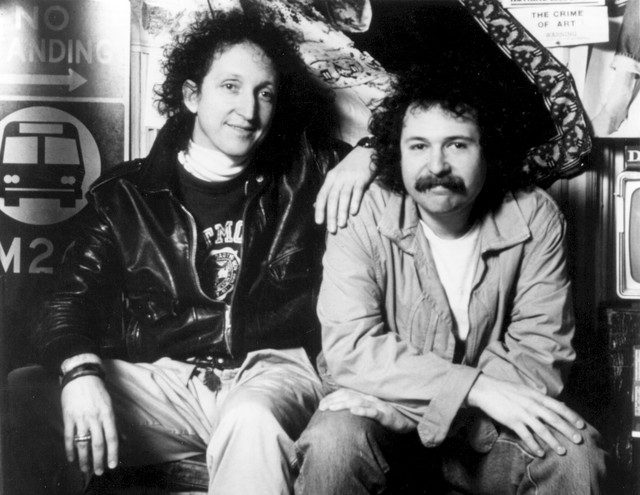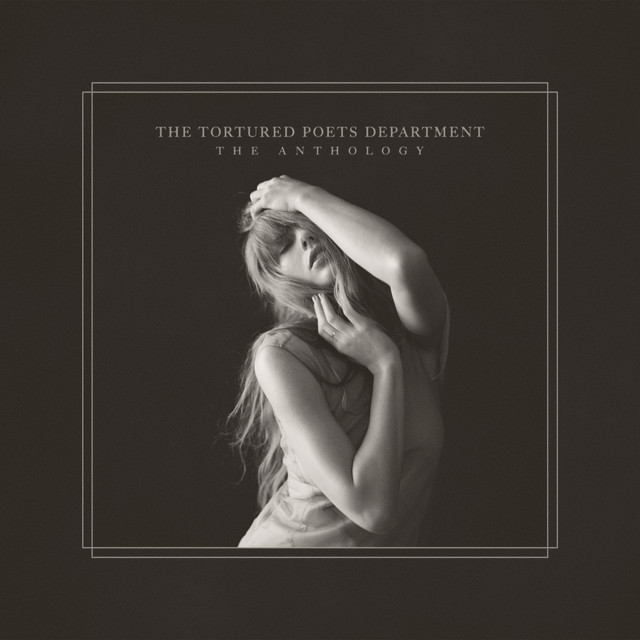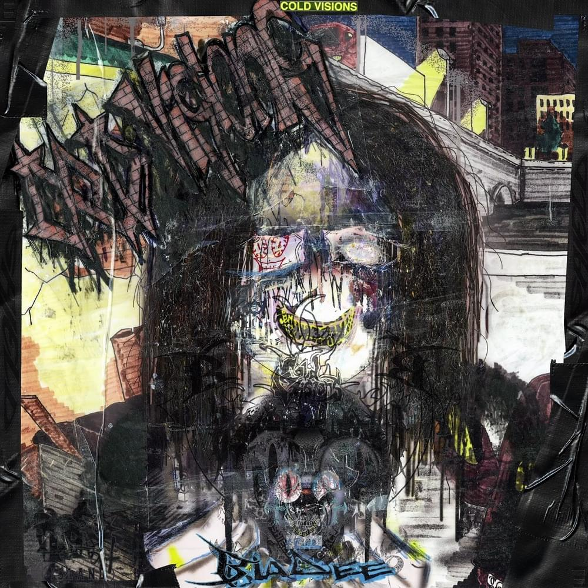In the expansive realm of music, the name Aztec Two-Step often elicits a confused, “Who?” — a New England folk band hailing from the golden age of folk rock. They’re as catchy as The Byrds and as soulful as Buffalo Springfield. Their obscurity can be framed as a freak cosmic hiccup — or a tale as old as the music industry itself.
Their story begins in 1971 at a coffee house in Boston, where Rex Fowler and Neal Shuman both show up in earnest at an open mic night. Like other legendary rock duos before them, their meeting was instantaneously magnetic, and it wasn’t long before they established themselves as the two-man band Aztec Two-Step.
The duo’s debut was in a place as counter-culturist in nature as their music — a free coffee house in Harvard Square dubbed “Coffee House,” where they gained immediate public approval, beginning their journey of both acclaim and anonymity.
Their next stop was to the mecca of struggling artists: Central Park. With guitar cases open, Fowler and Shuman collected nickels and dimes for their original songs; a modest compensation in comparison to the cover-singing folksters that lined that same street.
But it was this integrity that led them to their discovery, a three-song demo, and their ultimate signing to Elektra Records, an influential label for 60s and 70s rock and roll, housing iconic names like The Doors, Joni Mitchell and The Lovin’ Spoonful.
With the support from such a prolific label, they released their self-titled album, establishing their sound as light yet intellectual folk. The duo managed to quickly find the symbiosis between in-depth and easy listening, crafting songs that could be material for both radio airwaves and a local collegiate campus protest.
Each track on their paramount album is backed with brilliant acoustic and infused with two-part harmonies as smooth and soulful as those of Simon and Garfunkel. In a similar beat to others in their genre, Shuman and Rex were poets, proprietors of a flourishing counterculture movement who use their music as introspective social commentary. Following the spirit of their era, their politically-charged lyricism strikes parallels with that of Bob Dylan, while their Americana sound echoes that of John Denver.
Notable among their counterculture ballads is “The Persecution and Restoration of Dean Moriarty,” a homage to Jack Kerouac’s highly influential novel “On The Road.” As the third track on the album, it chronicles the nomadic lifestyle of Kerouac’s wayward character Dean Moriarty. The song relays society’s condemnation of his unconventional lifestyle, their hatred and fear a response to his discovery of total freedom. Aztec Two-Step croons that in the end, if they look inside themselves, they find that it is them that are the “freaks.”
The duo explored other themes of that era, such as astral projection and cosmic connection in their later psychedelic ballad “Cosmos Lady.” They also delved into classic folk-rock subjects, such as the melancholy of dying love in their song “Killing Me.” Regardless of the subject, Shuman and Rex proved to be brilliant storytellers.
Their debut album was naturally a success, primarily with college students in New England and progressive rock radio stations. They began touring and developed a significant fanbase.
After being denied the necessary support from Electra for a sophomore album, they turned to RCA Records, a record label with a roster of rockstars such as David Bowie and Mick Ronson. This transition resulted in three more albums, one being their more polished and romantic sophomore album “Second Step,” a 1975 release that echoes the same artistry of their first. However, they still couldn’t seem to get the number of sales needed for a commercial “big break.” By the end of the decade, RCA cut them loose. They decided to carry on making music as an independent label, continuing to tour with their loyal fan base.
In 1986, they released their album “Living in America,” a defining moment for their career, even winning them the New York Music Award for “Best Folk Album.” But the success did not propel them enough to catapult beyond the realm of the up-and-coming.
In their PBS documentary “No-Hit Wonder: The Aztec Two-Step Story,” Rex Fowler said, “We worked week in and week out for 20-some odd years. We gave 110 percent. We showed up and we put out. Sometimes there were three people, and sometimes there were 3,000, but as it wound down it was getting closer to the three.”
“We were always optimistic that there would be something around the corner for us, that we might have a chance to get on a meaningful label or with a meaningful booking agency, but none of those things really transpired,” he said.
With what Shuman called a quirk of fate, they never fully “made it,” and subsequently the duo ended.
There are plenty of plausible theories on why huge numerical success didn’t happen for the well-deserving Aztec Two-Step, one being the timing. Their genesis was during folk’s golden era, but as their career picked up, the folk landscape soon began to change. The counterculture movement started to fade, and so did the cultural relevance of their lyricism.
Another theory is Elektra’s insufficient support for their sophomore album, which was when they had the most momentum and attention on the scene. It could also have been their rejection of the flashy show-biz lifestyle, opting to remain authentic to themselves in both sound and character.
In the same universe that can be considered well-ordered for The Beatles is unordered for Aztec Two-Step. Perhaps if they had met a few years earlier, or had gotten more support from their labels, they would have achieved “synchronicity.” But who’s to say? And who’s to say that would have been a better fate?
While they did not find huge commercial success, their ultimate impact on the music scene’s progression is undeniable. Their catchy melodies and twangy anti-establishment ballads left an imprint on the history of folk music, providing substantial contributions to one of the most dynamic periods of cultural change in modern history. They narrowly avoided the fate of burn-out, sell-out or strung-out that infected the lives of so many rockstars. Instead, the duo remained true to themselves and autonomous in their creative direction, gracing us with over a dozen consistently brilliant albums.
Fortunately for long-time fans of Aztec Two-Step, or the more recently enamored, Aztec Two-Step 2.0 has been created. After Neal Shuman’s retirement in 2018, Rex Fowler and his wife Dodie Pettit started to perform their discography together in his absence. Upcoming shows this spring traverse coffee shops across Connecticut and New York.
While the story of Aztec Two-Step is nuanced, there’s also plenty of other bands just like them who didn’t fit the cosmic algorithm. It’s a timeless narrative endured by countless musicians who have navigated the unpredictable currents of the music industry. But the intent of making music transcends commercial success; it’s a catalyst for human connection, and those that have been “forgotten” will live on eternally in the hearts and minds of the loyal fans that once enjoyed them.
Caitlin Joy can be reached at [email protected].



















